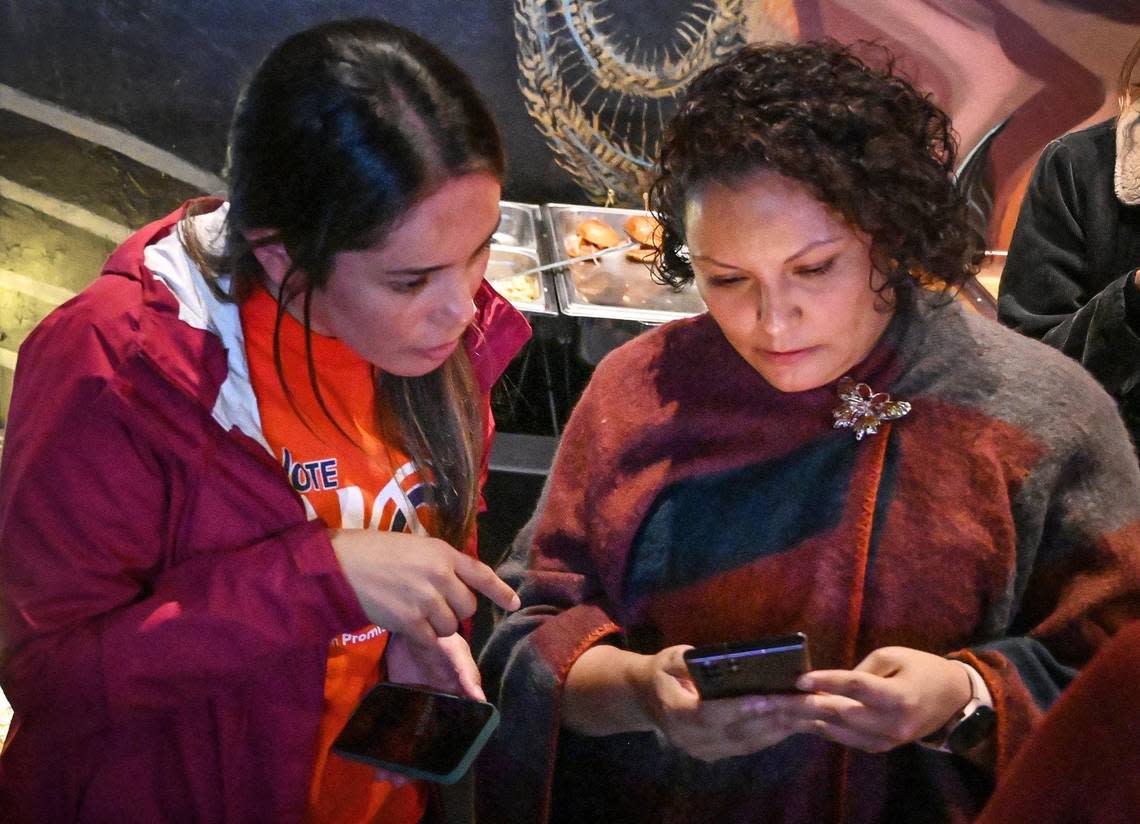In repeat of Fresno County election history, voters slam brakes on Measure C renewal
When it comes to a transportation tax, Fresno County seems determined to repeat history.
Twenty years after voters nixed a premature renewal of Measure C, the county’s electorate delivered a similar message Tuesday in the 2022 general election. As of 10:42 p.m. with 25.3% of the ballots tabulated, 58.2% of them were marked “yes” — shy of the two-thirds majority it needs to pass barring a sudden reversal.
The apparent result echoed what occurred in November 2002, when voters rejected a 30-year Measure C extension only to overwhelmingly support (by a 77% majority) a reworked 20-year version of the half-cent sales tax in 2006 that remains in effect through 2026.
Meeting the two-thirds majority barrier for government-proposed taxes or tax renewals is difficult in any election, but especially one shaped by inflation worries and recession fears. Those are reasons enough for many “no” votes, irrespective of political leanings.
And just like they did in 2002, opponents organized and mounted a well-funded campaign that nearly matched Yes on Measure C donations dollar for dollar. (Both sides ended up raising in excess of $300,000. I even heard a “No on C” spot during one of my favorite podcasts.)
Opinion
Only this time, the coalition was led not by Fresno County’s traditional liberal advocacy groups (i.e. the League of Women’s Voters and Sierra Club) but by nonprofits such as Fresno Building Healthy Communities and Leadership Counsel for Justice and Accountability that give voices to those traditionally excluded from the decision-making process.
As things turned out, the combination of voters opposed to taxes in general and those opposed to this specific version of Measure C were enough to sink the renewal.
“No more decisions without us, and I think the community has made that clear,” Leadership Counsel co-founder Veronica Garibay said Tuesday evening in the Tower District as the measure appeared headed for defeat.

What happens now? Will history keep on being replayed?
That ultimately depends. Mostly on how deep the opposing sides are willing to dig in their respective heels before finally resorting to compromise.
There are rumblings that separate transportation tax initiatives will be authored, and placed on the 2024 ballot through signature-gathering, by both Fresno County’s pro-business interests (with a nod from most of its elected officials) as well as the No on Measure C coalition. Leaving voters to choose from two competing measures.
Juicy political gossip, to be certain. But at this point, little more than that.
Vote requirements for local taxes may change
External factors could also alter the rules of the game between now and future elections.
One is a state proposition likely headed for the 2024 ballot that would increase the vote requirement for all local taxes to a two-thirds majority, irrespective of whether they are proposed by government officials or private citizens. Proponents for the so-called “Taxpayer Protection and Government Accountability Act” raised $15 million and submitted more than 1.1 million signatures in an attempt to qualify the measure in this election.
By contrast, state policymakers could renew previous efforts to lower the voter approval threshold to 55% for all city and county taxes proposed for public infrastructure (including roadway “improvements”) and affordable housing projects. Matching the 55% approval necessary for school bonds.
In another potential twist, state Assemblyman Joaquin Arambula may attempt to alter Measure C decision-making from the inside. How so? By sponsoring legislation to add more community seats to the Fresno County Transportation Authority’s governing board — similar to what the Fresno Democrat previously managed with the San Joaquin River Conservancy.
“I plan on doing that,” Arambula confirmed Tuesday evening.
In 2006, facing the threat of a soon-to-expire transportation tax, county leaders and organizations from all sides of the Measure C debate managed to sit down in a room together long enough (with the help of mediators) to hash out an agreement they all could live with.
Over the next four years, will history repeat itself once more? Everyone who drives a car, takes a bus, rides their bike or likes to walk in Fresno County had better hope so.
